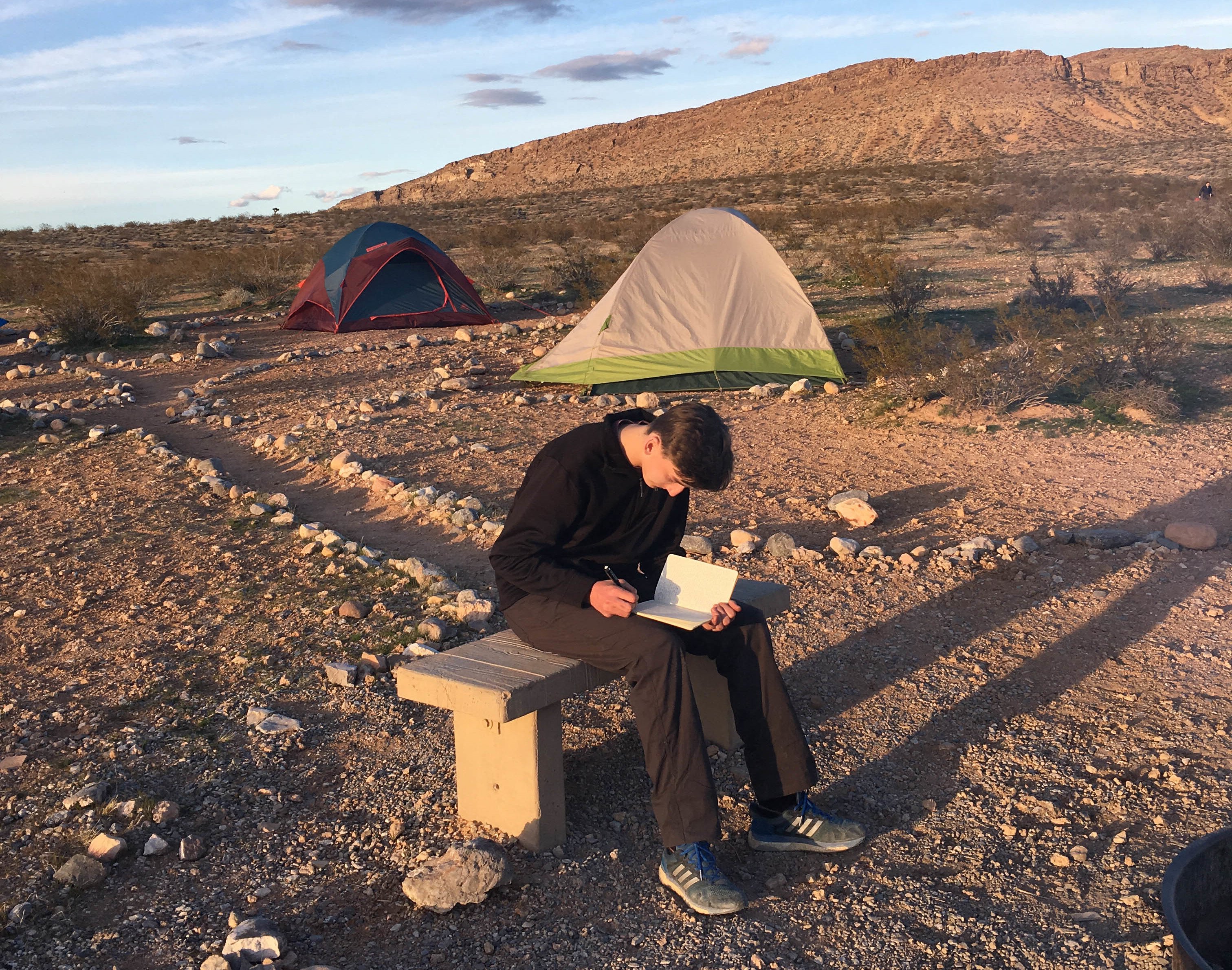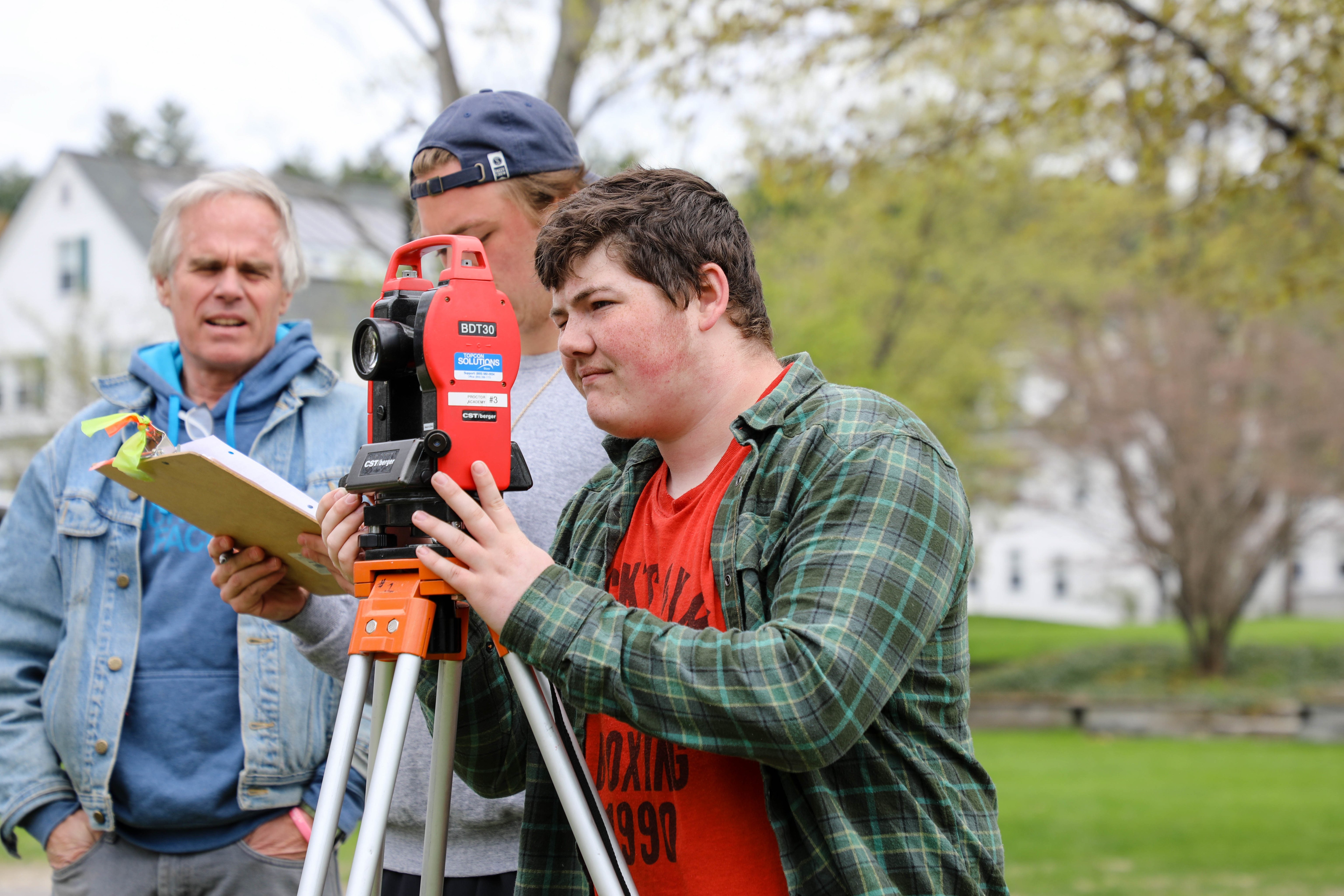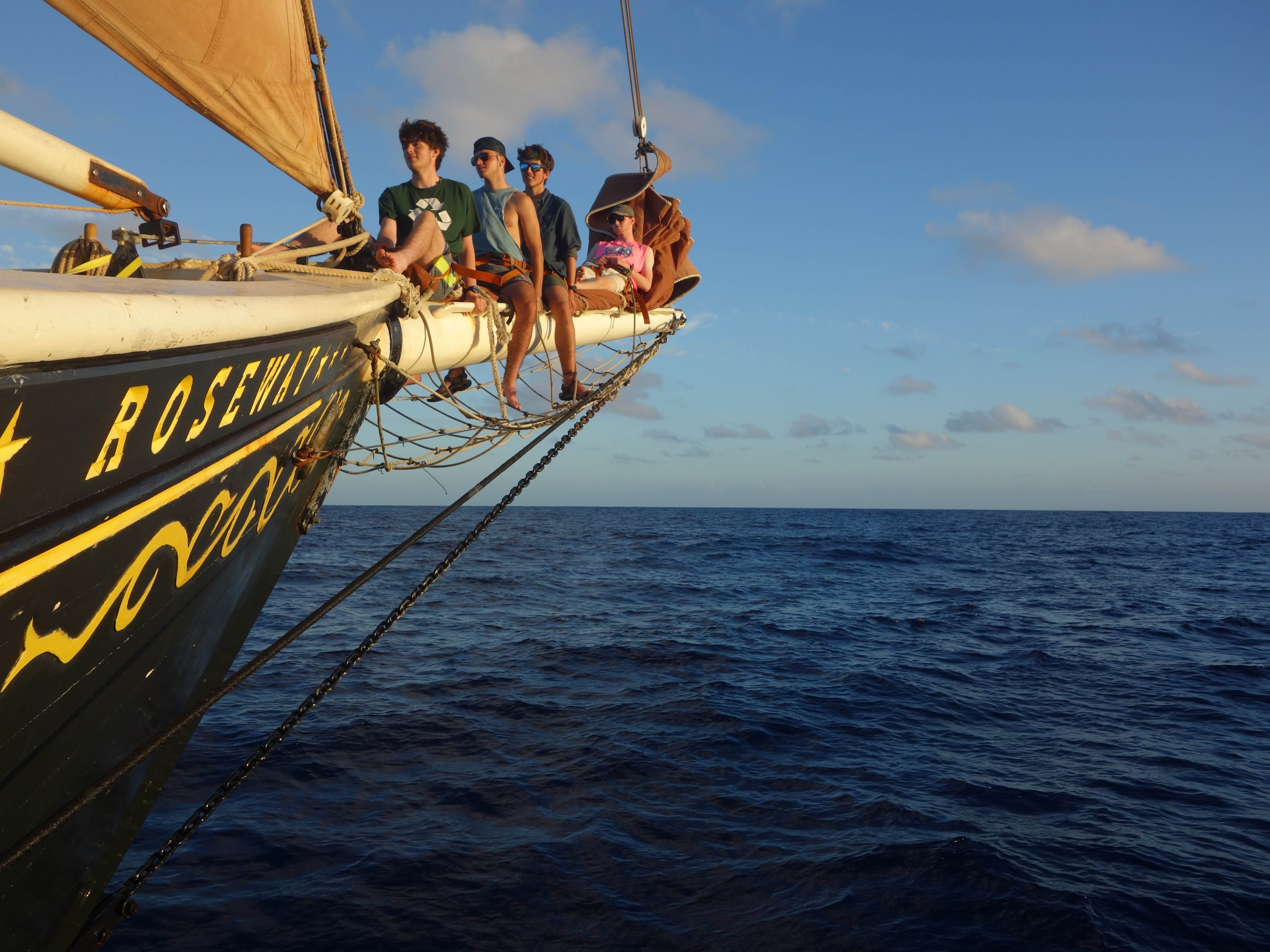The power of Proctor’s academic model lies in both the breadth and depth of academic pursuits. A single student’s path through Proctor may take them on multiple off-campus programs, summer internships, AP courses, Project Periods, and a summer service trip. They will customize their journey by taking a minimum of three art courses and three technology courses in addition to English, Social Science, Science, Math, and World Language classes, all while benefiting from the nation’s leading integrated academic support program - Learning Skills. Despite over 135 course offerings, individual classes do not differentiate Proctor from other independent schools. Instead, the entirety of the Proctor experience, and the collective opportunities available to students, set us apart.

In the late 1980s, Proctor dipped its toes into AP courses, seeking to enhance objective academic rigor on campus through the content driven courses offered by the College Board. Over the past thirty years, thousands of students have benefitted from courses like AP Physics, AP Calculus, AP Literature, AP Language and Composition, AP Economics, and AP Languages as faculty sought to put a Proctor-spin on each of these classes. The AP curriculum remains relevant, but provides a singular deep dive into content, and, in isolation, fails to meet an essential educational goal in the Proctor model: teach students to become ethical problem solvers through synthesizing learning across disciplines.

This mindset spawned the Academic Concentration Program in 2014 with two initial options: Global Citizenship and Environmental Studies. With the guiding question: "How do we encourage students to take their divergent learning experiences and apply them to their individual interests and passions?" During the summer of 2019, the Academic Concentrations Program expanded to include five paths, adding STEM, Creative Studies, and Social Activism to the original two options. With a mission to provide students the support and opportunity to design an individualized program combining coursework, extra-curricular programs, and off-campus experiences, the Academic Concentrations Program has just begun to tap into the power of interdisciplinary learning at Proctor.
Nine seniors are currently enrolled in Proctor’s Academic Concentrations Program, each developing a capstone project and working to complete the coursework required of this distinction. Kara Baird ‘20 (STEM), Nate Chickering ‘20 (Environmental Studies), Ryan Estella ‘20 (Global Citizenship), Ingrid Cole-Johnson ‘20 (Creative Studies), Tommy Harrell ‘20 (Global Citizenship), Peter Koumrian ‘20 (Environmental Studies), Chloe Makechnie ‘20 (Global Citizenship), Lila Montgomery ‘20 (Global Citizenship), Van Tran ‘20 (Global Citizenship) are weaving together the various strands of their Proctor journey into a powerful, interdisciplinary synthesis of their learning. Read more about a few of these students’ capstone projects in process:

Ryan ‘20 (Global Citizenship)
Conceived during a summer trip he took to the Caribbean's British West Indies, Ryan Estella's Global Citizenship capstone research paper will explore the effects of the Brexit debate on the small island of Anguilla and the problems the island will face if and when the United Kingdom departs from the European Union. As Ryan saw first-hand on his visit, two years after being hit by Hurricane Irma, much of Anguilla remains devastated. Ryan's capstone research paper will focus on how much of Anguilla's present state of disrepair is a result of the Brexit debate playing out thousands of miles from its shores. And if, as he suspects, Brexit is already causing Britain to neglect its territories, what kind of future can Anguilla expect in a post-European Union UK?
“During my revisit day in the spring of my freshman year, I was able to speak to Tom Morgan about the wonderful capstone project opportunities here at Proctor, and I was hooked. I have always had a knack for history and international politics, so it was only fitting that I pursue the Global Citizenship capstone project. As I dive headfirst into the research process, I am looking forward to discovering new pieces of information that I have never learned about before. I am driven by the thought of expanding my knowledge and discovering new areas of study, and my capstone project is a great way for me to achieve these goals.” - Ryan '20

Ingrid ‘20 (Creative Studies)
Inspired by the earth art of Andy Goldsworthy and her own experience as an art camp instructor, Ingrid’s Creative Studies capstone project will focus on the intersection of elementary school education and environmental art. Questions essential to Ingrid's capstone project include: How can we draw kids back out to nature? What physical, psychological/cognitive, benefits can children get from working with natural worldly material? How can we integrate more tactile, nature-based art activities in the elementary school curriculum?
“I was initially inspired by my advisor, Shauna Turnbull, to complete a capstone project my senior year—she frequently encourages my participation in extracurriculars that are in-line with artistic interests of mine. I am quite looking forward to this outdoors art-creating process! I am grateful for having this incentive to get out in the woodlands and to learn to let go as nature takes its course.”

Nate '20 (Environmental Studies)
"I haven't always been interested in Environmental Science. It wasn't until my sophomore year when I took APES(Environmental Science) that my perspective changed. I believe global warming is a big deal and I am passionate about learning more routes that individuals can take in order to help decrease their environmental footprint. I hope to use my capstone as an opportunity to learn more about water conservation and be able to apply that in my everyday life all while positively impacting the Proctor community."
Van ‘20 (Global Citizenship)
Focusing on her home country of Vietnam, Van Tran's Global Citizenship capstone research paper will explore the similarities between historical European colonialism and its contemporary manifestation: Western-style globalization. Van's research will look into the ways that colonialism and globalization have both had profound social and economic impacts on Vietnam, particularly regarding its cuisine, architecture, and popular culture. By comparing these two forms of Western expansion and socio-economic disruption, Van hopes to answer her essential question: Is globalization simply a contemporary form of colonialism?
"I wanted to complete a capstone because I wanted to use the opportunity to learn more about my culture with the support of faculty members at Proctor. Through this capstone project, I want to find the connection between Western globalization's impact on developing countries and Western colonization's impact on the developing world to see whether or not globalization is a form of colonization. Since I am part French, and French culture is present in Vietnam, I am particularly interested in the topic of colonization. Moreover, growing up in Vietnam I can see that Vietnam is moving away from its traditional culture to adopt ideas and culture from countries like the United States and France which is a result of globalization. In the future, I want to major in International Relations and Business, so this capstone project will help me develop the skills and knowledge in preparation for my future course of study." - Van '20








